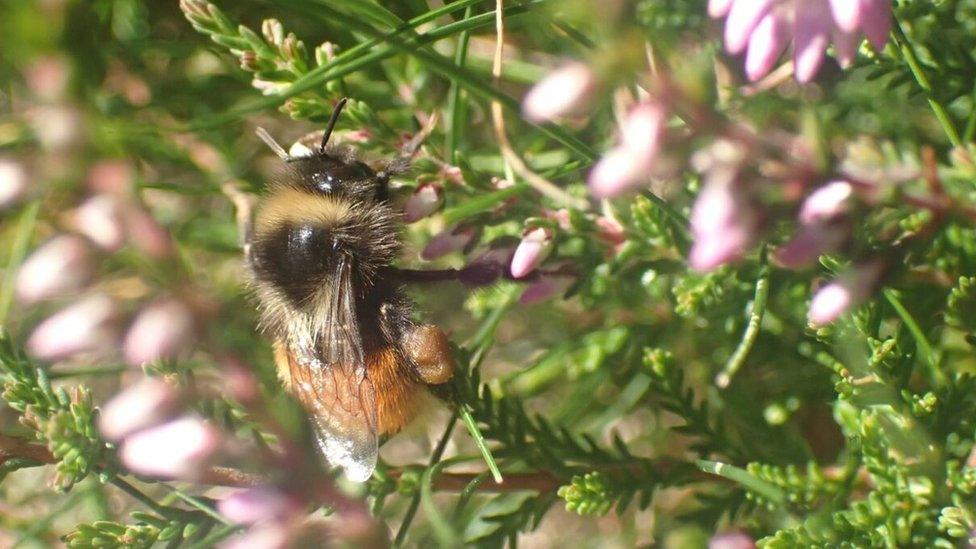Plan to reverse decline of bilberry bumblebee in Cumbria
- Published

The red-tailed bilberry bumblebee used to be common sight feeding on the plant's flowers in Cumbria
More pollen-producing plants will be planted and pesticides will be reduced to try to reverse the decline of a bumblebee in Cumbria's fells.
The Cumbria Wildlife Trust says the red-tailed bilberry - or mountain - bumblebee is "in trouble".
Under its Plan Bee communities, farmers, landowners and authorities are urged to help the pollinating insects.
The bees, which feed on the flowers of bilberry plants, are generally found in mountain or upland habitats.
The trust said it believed the species' decline was down to habitat loss.
It said since 1950 it was estimated the UK had lost 98% of flower-rich grassland and 50% of ancient woodland.
'Topsy-turvy weather'
The plan is made up of 66 actions, which also include having well-managed roadside verges, the creation of more wetland features and wildflower-rich meadows.
Stephen Trotter, chief executive officer of the wildlife trust, said: "The statistics for species loss paint a frightening picture, especially following the topsy-turvy weather patterns of the last 12 months, but our Plan Bee sets out how together, we can start to reverse this trend.
"We've already seen, over many years, how working in partnership helps our wild pollinators.
"For instance, restoring habitat on the west coast created much-needed new wildlife corridors between the colonies of small blue butterflies, boosting their recovery."

Follow BBC North East & Cumbria on Twitter, external, Facebook, external and Instagram, external. Send your story ideas to northeastandcumbria@bbc.co.uk, external.